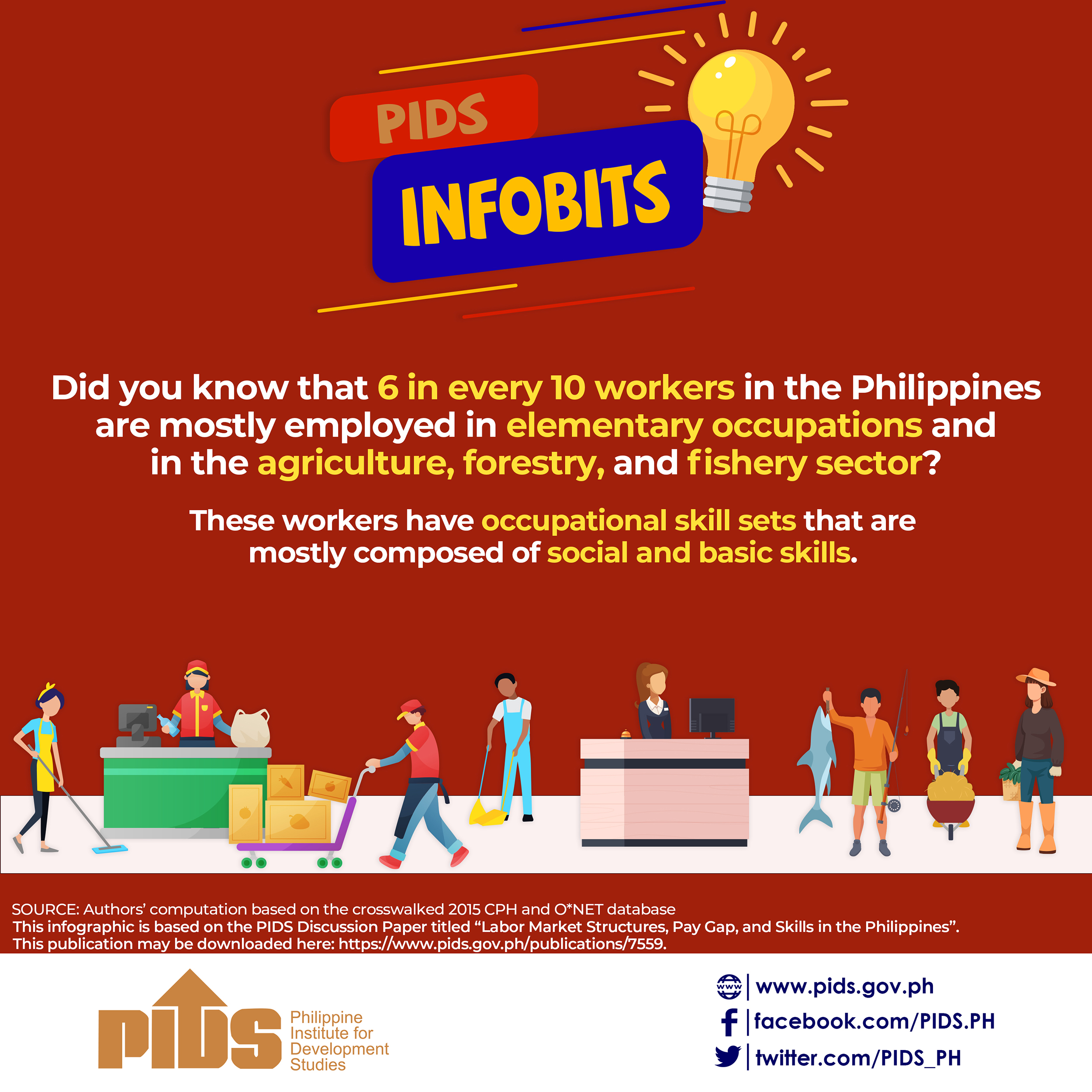THE recovery efforts of the government depends in large part on jobs creation and consumer spending, as these two will both uplift the economy: the first will directly impact on the masses while the second will boost business confidence and investments.
Before the COVID-19 pandemic, all our skills training for future joiners in the labor force occur face to face in high schools, colleges, universities and technical or vocational schools. With the onset of the pandemic, this has changed a lot, with online training and skills development taking on a bigger role.
Malaya Business Insight bannered a story last Dec. 22, 2021 about a scientific and academic study on labor-education relationships that should prod our representatives and senators to rethink their priorities.
A preliminary report by the Philippine Institute for Development Studies (PIDS) said six out of every 10 workers in the Philippines are employed in elementary occupations and in the agricultural, forestry and fishery sectors, with skill sets that are mostly composed of social and basic skills.
The discussion paper, “Labor Market Structures, Pay Gap, and Skills in the Philippines” said there is a need to investigate the basic education sector and the kinds of school and home environments that can foster gendered differentiated learning.
“Failure to address the issues in the sector can result in the workforce missing out on reskilling and upskilling opportunities that are widely available online,” the report said.
Authors Connie Bayudan-Dacuycuy and Lawrence Dacuycuy pointed out that some in-demand jobs in the information technology-business process management (IT-BPM) and manufacturing sectors require a specific skills bundle that include analytical skills such as systems analysis, systems evaluation, operations analysis, programming and technology and design.
“Hard-to-fill jobs, mostly in health and wellness, manufacturing, construction, banking and finance and IT-BPM, require specific skills. While the average social, basic and management skills in these jobs are like those of in-demand jobs, the analytical skills required are substantially higher than those of the in-demand jobs,” the report said. It also underscored the importance of tertiary education in enhancing the readiness of the country’s future workforce.
The study relays to our policymakers this important message: It is essential to understand the structure of the labor market in the context of occupational skills. We hope they are listening.












